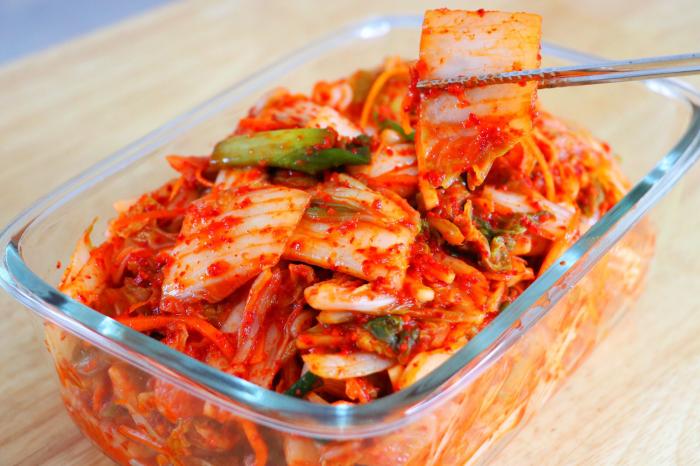Breastfeeding is a crucial time for mothers and their babies. What you eat can affect your milk and your baby’s health. Many new mothers wonder if they can enjoy certain foods, like kimchi. Kimchi is a fermented dish made from vegetables, mainly napa cabbage and radishes, mixed with spices. This article explores whether kimchi is safe to eat while breastfeeding and its potential benefits and risks.
Nutritional Benefits of Kimchi
Kimchi is rich in essential nutrients. It contains vitamins A, B, and C. It also has minerals like calcium and iron. These nutrients are important for breastfeeding mothers. They support overall health and help in milk production.
Probiotics and Gut Health
One of the main benefits of kimchi is its probiotic content. Probiotics are live bacteria that are good for gut health. They help maintain a healthy balance of gut bacteria. This balance can improve digestion for both the mother and the baby.
A healthy gut can also influence the immune system. Some studies suggest that probiotics may reduce the risk of infections. This is beneficial during breastfeeding when the mother’s immune system is crucial for both her health and the baby’s.
Potential Risks of Eating Kimchi While Breastfeeding
While kimchi has many benefits, there are some risks to consider. The most significant concerns are the spice level and salt content.
Spicy Foods and Breastfeeding
Kimchi can be very spicy. Some babies may be sensitive to spicy foods. If a breastfeeding mother eats spicy kimchi, it may affect her baby’s behavior. Some babies might become fussy or gassy. Others might not show any reaction at all.
It is important to observe your baby after eating spicy foods. If you notice changes in their behavior, it may be best to reduce or avoid spicy foods like kimchi.
High Salt Content
Kimchi is often high in salt due to the fermentation process. Consuming too much salt can lead to dehydration in both the mother and the baby. High salt intake can also contribute to high blood pressure, which is a concern for some mothers.
If you love kimchi, consider choosing low-sodium varieties. You can also make your own kimchi at home, controlling the amount of salt used. This way, you can enjoy kimchi without worrying too much about sodium intake.
Allergies and Sensitivities
Some people may have allergies to certain ingredients in kimchi. Common allergens in kimchi include garlic, seafood (if present), and certain spices. If you have a history of food allergies, be cautious when consuming kimchi.
While allergies are rare in babies, they can occur. If you eat kimchi while breastfeeding, watch for signs of allergies in your baby. These signs may include skin rashes, digestive issues, or respiratory problems. If you suspect an allergic reaction, consult your pediatrician.
How to Introduce Kimchi into Your Diet
If you want to enjoy kimchi while breastfeeding, start slowly. Introduce small amounts into your diet. This allows you to monitor your baby’s reaction.
Choose Quality Ingredients
When selecting kimchi, opt for high-quality brands or make your own. Look for kimchi made with fresh vegetables and minimal additives. Avoid brands with artificial preservatives and high sugar content.
Listen to Your Body
Pay attention to how your body reacts after eating kimchi. If you feel any discomfort or notice changes in your milk supply, consider reducing your intake. Your health and comfort are essential for successful breastfeeding.
Alternatives to Kimchi
If you’re hesitant about eating kimchi, there are alternatives that offer similar health benefits.
Other Fermented Foods
Consider adding other fermented foods to your diet. Options like yogurt, kefir, sauerkraut, and miso are great choices. These foods also provide probiotics and nutrients beneficial for both you and your baby.
Vegetables and Spices
If you enjoy the flavor of kimchi but want to avoid potential risks, try using similar spices in dishes without the fermentation. Incorporate garlic, ginger, and chili in cooking, but in moderation. This can give you a taste of kimchi without the strong effects.
See also: Is Turmeric Tea Good For Breastfeeding Mothers
Conclusion
In conclusion, eating kimchi while breastfeeding can be safe and beneficial for many mothers. It provides essential nutrients and probiotics that support gut health. However, it is crucial to consider the potential risks, such as spice levels and high salt content.
Every baby is different, so what works for one may not work for another. Always monitor your baby’s reactions and consult your healthcare provider if you have concerns. If you enjoy kimchi, start with small amounts and choose high-quality varieties.
By being mindful of your diet and your baby’s needs, you can enjoy a variety of foods while breastfeeding, including delicious kimchi. Remember, your well-being and your baby’s health are the top priorities. Enjoy your culinary journey and the joys of breastfeeding!
Related topics:


